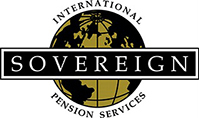Our Company
- Details
- Written by: API Manage
- Category: Uncategorised
- Hits: 24158

- Details
- Written by: API Manage
- Category: Uncategorised
- Hits: 20145
Buy Bullion & Coins
SIPS clients can self-direct their accounts into a wide variety of bullion products, including allocated lots of gold, silver, platinum, or palladium - single coins to multi-ounce bars - with worldwide storage options, low prices, complete liquidity, total security, limited reporting requirements, and access to a 24-hour buying and selling platform online.
Store Precious Metals Globally
Store your precious metals with total security in fully audited and insured independent vaults in New York (Brinks), Salt Lake City (Brinks), Zurich (Loomis), London (Loomis), Singapore (Malca Amit) or Melbourne (Brinks) - the same vaults used by central banks and governments throughout the world.
FAQ's
- Minimum requirement- $5,000 for U.S. Vaults, $10,000 for non-U.S.
- Pricing- Competitive pricing with at least 4 suppliers. instantaneous
- Platform- Buying and selling is accomplished online from your own computer simply and efficiently.
- Storage- Storage of precious metals outside of the U.S. requires the use of an LLC.
More information on metals offered, pricing, technology, delivery etc. is available upon the establishment of an IRA or other type of Retirement Plan with SIPS, or contact us now.

- Details
- Written by: API Manage
- Category: Uncategorised
- Hits: 21127
Own Domestic and International Real Estate With Your IRA/401(k)
Larry C. Grossman is the Managing Director of Sovereign International Pension Services, Inc. Larry was one of the first financial advisors in the country to develop a compliant method for assisting clients to move IRA's and pension plans offshore. He has more than 25 years experience and is the author of The Ultimate Retirement Protection Plan: A Step-by-Step Program for Taking Your IRA, 401(k), or Pension Plan Offshore, available on Amazon.com.
You can own real estate in your IRA contrary to what you may have been told by your advisor. The IRS permits a great deal of flexibility when it comes to investing the assets of your retirement account, including both foreign and domestic real estate.
Making these types of investments can be quite challenging if you don't have a "self directed" IRA. Many IRA custodians impose investment restrictions. Most of these restrictions have nothing to do with the IRS code governing retirement accounts but are instead designed to make life easier for the custodian or worse yet, they are there to steer clients into investments the custodian is compensated for.

What’s allowed—the real skinny
The truth is the rules are straightforward. You can own virtually any kind of real estate in your IRA or other retirement account including:
• Raw land
• Condos
• Office buildings
• Single-family homes
• Multi-family homes
• Apartment buildings
Prohibited transactions and self-dealing
The IRS has some important rules that must be followed. They also define what you cannot do. There is a simple rule of thumb. Your retirement plan is meant to benefit you at your retirement and not before. Therefore, you may not deal with yourself or another disqualified person.
What does this mean? You can't sell a piece of property you personally own to your IRA or vice versa. In short, you cannot lend money, extend credit, or furnish goods, services, or facilities to yourself or another disqualified individual. You can invest in any type of real estate you want as long as it is not for your own personal use while inside of your IRA.
Let’s say you've found the retirement home of your dreams or a piece of property you would like to build on. Domestic or foreign real estate is permitted. When you retire you can take possession of the property or sell it. Taking possession of the property allows you to take it as a distribution from your IRA or retirement plan without selling it. Now that you own the property personally it's yours to use as you see fit. It's important to note you do not have to sell the property but you would still be responsible for the taxes due.
You can sell the property outright at any time. If you keep the property and take it as a distribution you will be taxed on the value of the property.
Other requirements:
• You may not purchase the property from yourself.
• You may not purchase the property from family members, except for siblings.
• Neither you, your business, nor members of your family may lease or live in any investment property owned by your plan.
• Fractional ownership is allowed. (Partnering your IRA with other investors or IRA participants is permissible)
Who is “disqualified”?
The IRC code disallows dealing with yourself or another “disqualified person.”
Definition-
This is a simplified version of the definition of a disqualified person.
1) An owner, direct or indirect, of 50% or greater of: (the IRA Participant is an owner)
• The capital interest of a partnership.
• The total value of all shares of stock of a corporation including all classes.
• The combined voting power of all classes eligible to vote.
2) A member of the family, excepting siblings.
How To Own Real Estate In Your IRA
There are many ways to own real estate in your IRA. You can own the real estate fully or fractionally with other entities or investors. You can purchase an option on the real estate or you can buy it outright using a land trust, LLC, or similar entity.
You also have the flexibility of paying for the property in full using your retirement assets or you can finance it. You must take special care to structure the purchase correctly if the property is financed to avoid adverse tax consequences.
The down payment and an equivalent amount of the ongoing payments and expenses must come from the plan if the property is fractionally owned.
Taking on debt
If you wish to use your retirement plan to invest in real estate but do not have sufficient funds in your IRA, your IRA can incur debt. This debt/mortgage must be in the form of a non-recourse loan where the only recourse for default of the loan is the underlying real estate/property.
How do I do this?
The good news is you can find the property of your dreams anywhere in the world, purchase all or part of it with your retirement assets, and eventually take ownership of it—all completely legal.
For additional information, please contact the office at:
Larry C. Grossman
7143 State Road 54, Suite 147
New Port Richey, FL 34653
tel. (727)286-6237; fax (727)286-6239
email: lgrossman@offshoreira.com
- Details
- Written by: API Manage
- Category: Uncategorised
- Hits: 10497
What are the benefits of a Self-Directed IRA? It's simple, you and you alone are in total control of your IRA without any of the artificial restrictions typically imposed by Wall Street or most IRA custodians. A self-directed IRA puts you in the driver's seat. When you “Liberate Your IRA” you are able to make investments you've only dreamed about and you can do so in a much more cost effective manner while eliminating the expense of the middle man.
You'll be able to realize your retirement dreams by investing onshore or offshore, in things like: real estate, precious metals, or even foreign bank accounts!
- Details
- Written by: API Manage
- Category: Uncategorised
- Hits: 25383
Have you ever been told by your financial advisor that you can't make an investment in your IRA? It happens all of the time. That's because many “IRA Custodians” only allow you to invest in so called “traditional investments” and won't allow you to invest in alternative investments. Traditional investments, you know, things like: stocks, bonds, mutual funds and annuities. Have you ever asked yourself why they would do that? It's because they are financially compensated when you invest in one of their products or an investment they are affiliated with. Oftentimes the investment recommended is driven by the commission the advisor receives.
I wrote an article in September of 2008 called, Whose Retirement Is It Anyway? Wrest Back Control of Your Financial Future from the Presumptuous Fat Cats on Wall Street. Click here if you would like to read the story of how we helped someone regain control of his retirement plan while making the investment of his dreams.


